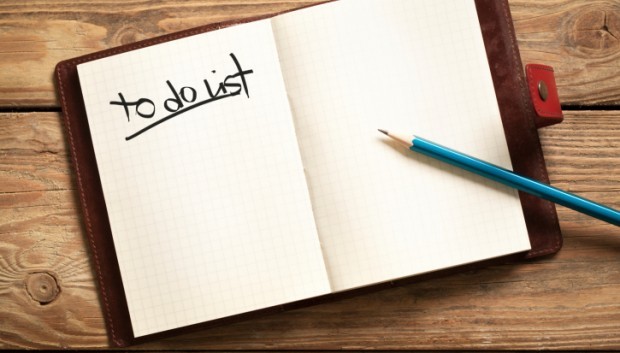
7 Tips to Manage Your Time and Maximize Your Marketing
If you find yourself running out of time at the end of the day, or scrambling with each unscheduled meeting or unexpected phone call, read on. While these seven tips may not add hours to your day, they can help you make the most of the time you’ve got and ensure you stay focused on what matters most – driving your business.
Tip #1: Get up earlier
“There are certain things that make mornings a great time for getting things done,” says Laura Vanderkam, author of 168 Hours: You Have More Time Than You Think.
Whether you’re trying to get in a quick workout or finish a creative project, you may have more energy for it in the morning than you would after a long, hard day at work. And if you set your own hours, coming in early may help you finish up your most pressing tasks while it’s still daylight.
Experimenting with different schedules and diligently tracking your hours can help you determine what works best for you.
Tip #2: Prioritize ruthlessly
Even more crucial than writing down everything you need to for the day or week is figuring out what to work on when. “Many people don’t focus or have a clear direction of what they’re trying to do,” says time management expert Ken Glickman.
He typically asks his clients to spend some time thinking about where they are, where they want to go and how they’re going to get there. “Prioritizing is knowing what’s most important, and having the strength and focus to take care of the most important things first,” he explains.
But prioritization isn’t just about meeting deadlines. Activities without a due date can have a great payoff as well. For those, Glickman recommends actually scheduling time to complete the activities in order to stay on track.
Tip #3: Plan, but don’t over-plan
If you find yourself constantly shuffling around tasks in project management software, or redoing your daily and weekly to-do lists, you’re not alone. “A lot of people engage in what people call meta-work, which is getting ready to work but not actually working,” Vanderkam explains.
Although those who plan their days tend to perform better than those who don’t, it’s possible to spend too much time reprioritizing to-do lists and not actually crossing anything off of them.
For that problem, Vanderkam recommends limiting a list of daily activities to just three to six items. This not only helps minimize the amount of time spent organizing a list of tasks, but allows for flexibility should something else come up. Which leads us to tip number four.
Tip #4: Don’t schedule too tightly
Scheduling every single minute of every day can make it difficult to deal with things that inevitably come up — whether they’re quick opportunities or last-minute crises. “The more open space you can have on your calendar, the better,” Vanderkam says. Limiting priorities to a small list allows room to deal with whatever the world throws at you.
It’s also a better strategy for overall morale. Having a realistic list of tasks to achieve in a given day will likely leave you with a sense of accomplishment. Not so when the list is so long that you can barely make a dent.
Tip #5: Be mindful of your energy level
If you plan your priorities for the day, you can tackle them when you’re most fresh. Structure breaks to coincide with your low-energy times. A quick walk when you’re dragging can give you enough of a boost to tackle something new afterwards.
Begin to pay attention to when you find yourself most distracted. Are there any patterns related to specific events, activities or time of day? Of course there are times when it’s necessary to just power through, but the more you can understand your own specific quirks and energy levels, the better you’ll be able to plan your day accordingly.
Tip #6: Learn to say ‘No’
Saying no is a skill that’s difficult for many people. Glickman has a trick. He reminds himself that when he says yes to responsibilities, he’s also saying no to something else — spending time with his daughter Chloe, for example. This realization makes it a lot easier to set clear boundaries.
It’s also worth noting that spending more time on fewer things can allow you to be more effective, both because you won’t have to redo mistakes made while rushing and because you’ll be working more carefully.
Tip #7: Ask where you want to spend more time, not less
“I get a lot of questions about how to spend less time doing things, and I think it’s even more important to ask what you want to be spending more time doing,” says Vanderkam. Productivity is not just about saving time, but about how you’ll spend the time you save, and by doing what you think is important more often. “I think it’s really about filling up your time with what deserves to be there,” she says.
Have any time management secrets up your sleeve? Share away in the comments
This post contributed by guest author, Yael Grauer. Grauer is a Minneapolis-based freelance writer and editor. Find her online at Yaelwrites.com.
© 2013 – 2018, Contributing Author. All rights reserved.




Thanks for this. I think the hard thing about getting up earlier is that there’s always an earlier time to get up! If you have kids you’ll know what I mean. Getting up before them to get work done is hard. I think this one depends on your personal schedule. For example some people are night owls and are just more productive at night, or by necessity (because of kids or whatever), need the evenings more than the mornings to get things done.
I really like how you say that we need to remember our energy levels and learn how to say “no.” I’ve experienced this and learned from it the hard way. Sometimes we are over ambitious to get a lot done that we don’t realize we are over-doing it and it takes much longer than we think to get through our to-do list. I also have learned that saying no can be more profitable than saying yes all the time. You start producing better work by being able to focus on less, and that gets you noticed.
I have my main problem with Tip #3: Plan, but don’t over-plan…I always try to work over than 100%, so as usual I have an insomnia…And event this nights I stand up and begin to work. But this way, I lost the Tip #1: Get up earlier. As I didn’t sleep all the night, sometime my day begins in 01-02 PM 🙁
Thanks for useful tips 🙂
What a great article. Thanks for sharing those tips. Sounds like my life as a business manager. The only thing I may add from my 34 years of business experience – is that there are “morning people” and there are “night people” – just genetic I suppose. Being in a 24/7 internet business where we are staffed with three 8 hour shifts per day, I find that it is critical to match the type of person (morning or night) with the appropriate shifts and job functions. If you put a “night person” on the 8AM – 4PM shift, I find you will not get nearly as much output per day from them as if you just switch them to a later shift (which may involve changing their job function a bit as well). I, personally, have always been a “night person, and “hit my zone” (or being “there” as Emily Hunter said above) between about 9PM and 1AM. That’s when I am most productive and creative – and I know I tend to really drag whenever I have to attend 8AM meetings. As the article above mentions, I too, have trouble saying “No”, which I need to work on – because that can really cause “work burn-out”, no matter how motivated you may be. Just my two cents…..
I love how a lot of these come down to mindfulness and making sure that you’re in the moment. I know that my productivity has shot sky high when I’m actually *there* to make sure that I do what needs to be done. 🙂 Thank you.